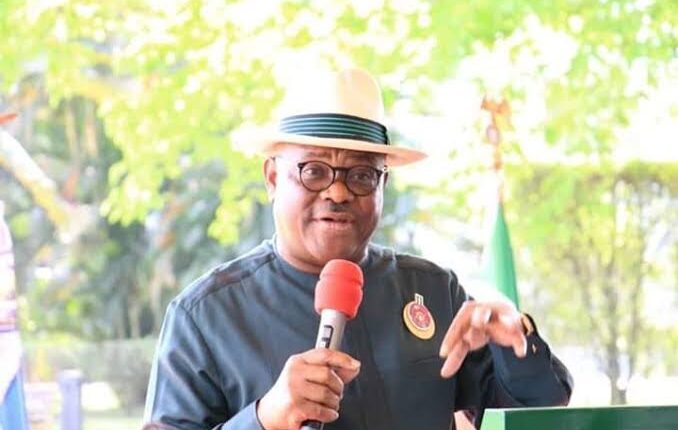Minister Wike’s uncoordinated development in the FCT
|
Getting your Trinity Audio player ready...
|
By Adam K. Waziri
When public office holders speak with the air of righteousness, condemning others of corruption and maladministration, one expects that their own conduct would stand tall as an example of probity and coordinated leadership.
Unfortunately, the case of Nyesom Ezenwo Wike, the current Minister of the Federal Capital Territory (FCT), is one of glaring contradictions, many describe his, rightly or wrongly, as one with an emperor-like approach to governance marked by unilateralism, impunity, and deeply uncoordinated development.
Perhaps the most emblematic of this disorder is the construction of elaborate bus terminals across the city without a single bus procured or planned for public use.
At present, the entire FCT with a landmass of about 8,000 square kilometres and the Federal Capital City covering 250,000 hectares—is expected to be served by only four hybrid buses recently donated by the Federal Government. Even if these buses were dedicated to the Abuja Municipal Area Council alone, the scale of demand versus supply would remain an outright mockery of urban planning.
Equally disturbing is the commissioning of a new water treatment plant whose distribution channels remain unlinked. A water plant without reticulation is a monument to waste, not service delivery. It symbolizes a “one-man show” where grandiose projects are launched for optics rather than integrated into a coherent plan that actually benefits residents.
As these questionable projects take center stage, news has now broken of a lavish property acquisition in Florida, USA, reportedly linked to the Minister and registered under family members. This development casts a dark shadow over his public utterances where he accused civil servants of theft.
More damning are allegations that Federal Capital Territory Administration (FCTA) funds are being indirectly funnelled into bribing segments of the judiciary—an insurance policy for the day judicial scrutiny inevitably comes knocking. For instance, the Legal Services Secretariat had its budget diverted to purchase vehicles for the Abuja Law School, while its own lawyers are left without transport to attend to the numerous cases pending across FCT courts.
Meanwhile, federal judges were reportedly “dashed” brand new Toyota Prado jeeps, while vital FCTA staff languish without even one functional official vehicle.
And it does not end there. The International Conference Centre was renovated at a staggering ₦39 billion, and the Minister’s Life Camp residence consumed another ₦6 billion for renovations alone. Such expenditures reveal a governance style that prioritizes personal aggrandizement and spectacle over service delivery and accountability.
These patterns paint Wike not as a reformer but as an albatross—both to President Bola Tinubu’s administration and to the Nigerian people. The Minister has, at times, appeared more powerful than the President himself, as in the case where a duly appointed Executive Secretary of the Federal Capital Development Authority was removed at his insistence. Such impunity corrodes institutional authority and undermines the presidency.
Nigeria cannot afford to be weighed down by leaders who project moral authority while engaging in unwholesome tendencies. The impunity is enough reason for President Tinubu to act decisively, lest the Minister’s shadow consume the very credibility of the government.
The President must not risk the judgment of history—and the rejection of voters in 2027. For Nigerians are watching, and the mess we find ourselves in cannot be blamed on “outsiders.” It is the handiwork of those entrusted with the public trust, but who betray it for personal gain.
Waziri wrote from Apo village, Abuja



Comments are closed, but trackbacks and pingbacks are open.